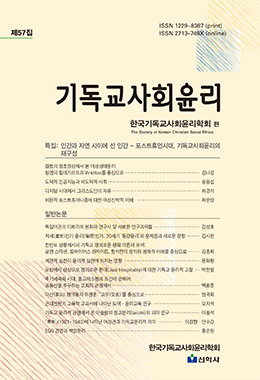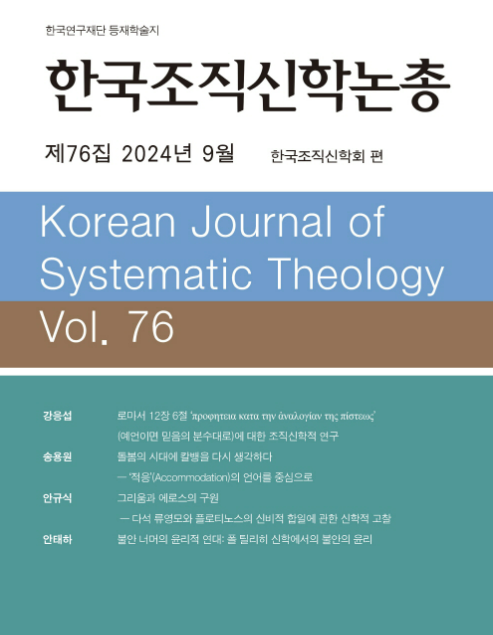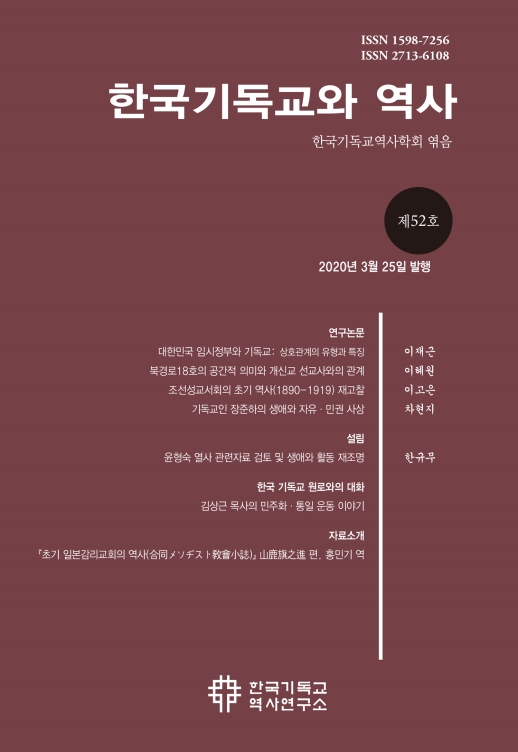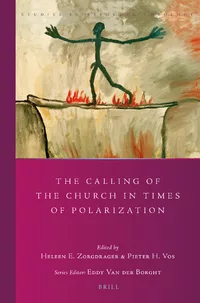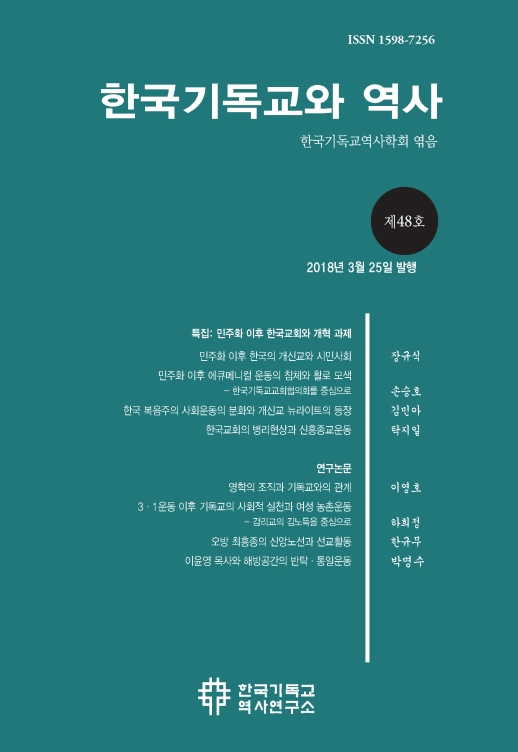최근 한국 교회가 직면한 큰 어려움 중 하나는 바로 공적 신뢰의 상실일 것이다. 급격한 성장을 경험했던 한국 교회는 신실한 신자를 양성하는 데 실패했으며, 여러 스캔들로 인해서 불신자들이 오히려 교회를 걱정하는 지경이 되었다. 이런 현실을 통해 여러 학자들은 지식의 주입과 학습이 자동적으로 바른 실천으로 이어지지 않는다는 자각을 하게 되었고, 어떻게 하면 바른 신학이 사회 속에서의 바른 실천으로 이어질 수 있을까에 대한 관심을 가지게 되었다. 현재 한국 교회가 겪는 이 어려움들을 먼저 체험한 미국의 여러 예배학자들은 예배학과 기독교 윤리가 밀접한 관계를 가지고 있음을 깨닫고, 간학문적인 연구를 통해서 교회 안에서의 예배가 사회의 구조적 변혁으로 이어져야 함을 주장하였다. 이는 예배학의 중요한 공리인 예배의 법칙이 믿음의 법칙을 형성할 뿐만 아니라 행동의 법칙이 되어야 한다는 것에 근거한다. 본 논고에서는 예배와 예전적 실천이 어떻게 신자의 신앙을 형성하는지를 고찰한 후, 예배 실천이 어떻게 우리의 거룩한 습관을 형성하고 행동의 변화로 이어질 수 있는지를 예전신학적 차원에서 살피고자 한다. 나아가 예배 속 요소들이 어떻게 개인의 내면에 사회에 대한 진정한 관심과 구조적 변화를 향한 열망을 불러일으킬 수 있는지 논증할 것이다.
One of the significant challenges currently facing the Korean church is the loss of public trust. Despite experiencing rapid growth, the Korean church has failed to nurture faithful believers, and various scandals have led unbelievers to become concerned about the church. In light of this reality, many scholars have realized that the imparting knowledge and learning does not automatically connect to righteous practices. They have developed an interest in how orthodox faith can lead to orthodox practice within society. Liturgical theologians in the United States who earlier faced similar challenges have recognized the close relationship between liturgical studies and Christian ethics. Through interdisciplinary research, they have argued that worship within the church should be connected to the structural transformation of society. This argument is based on the fundamental principle of worship, which suggests that the laws of prayer should not only shape the laws of faith but also become the laws of action. This paper will explore how worship and liturgical practices influence the formation of a believer’s faith. This study will examine how worship can shape the believer’s holy habits and lead to behavioral changes from a liturgical, theological perspective. Furthermore, this article will argue how elements within worship can ignite genuine concern for society and a desire for structural change within an individual’s inner self.


